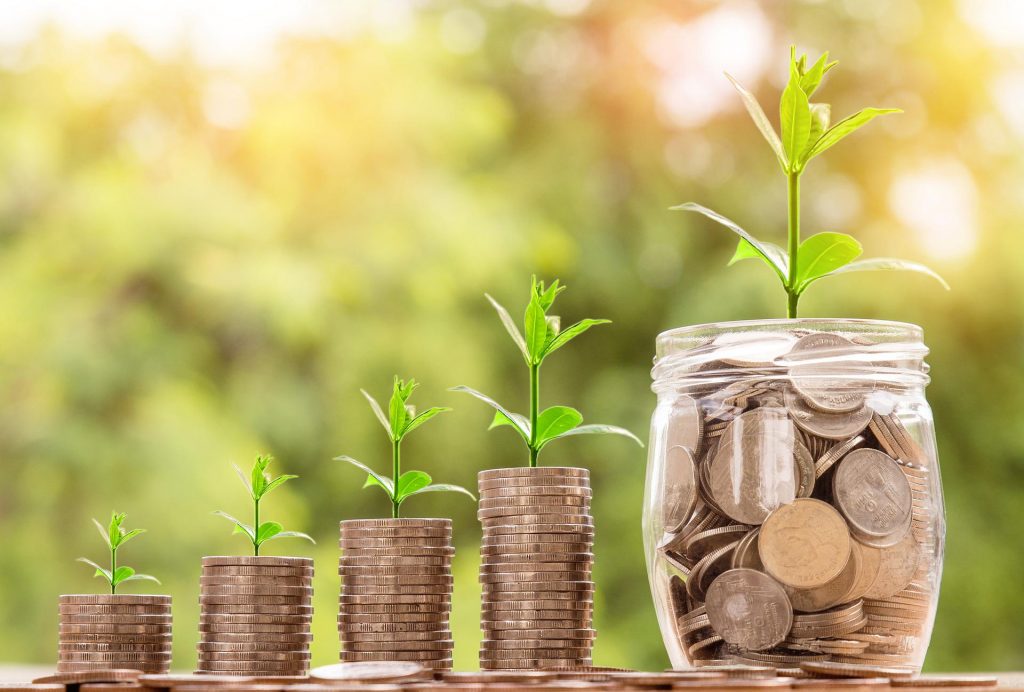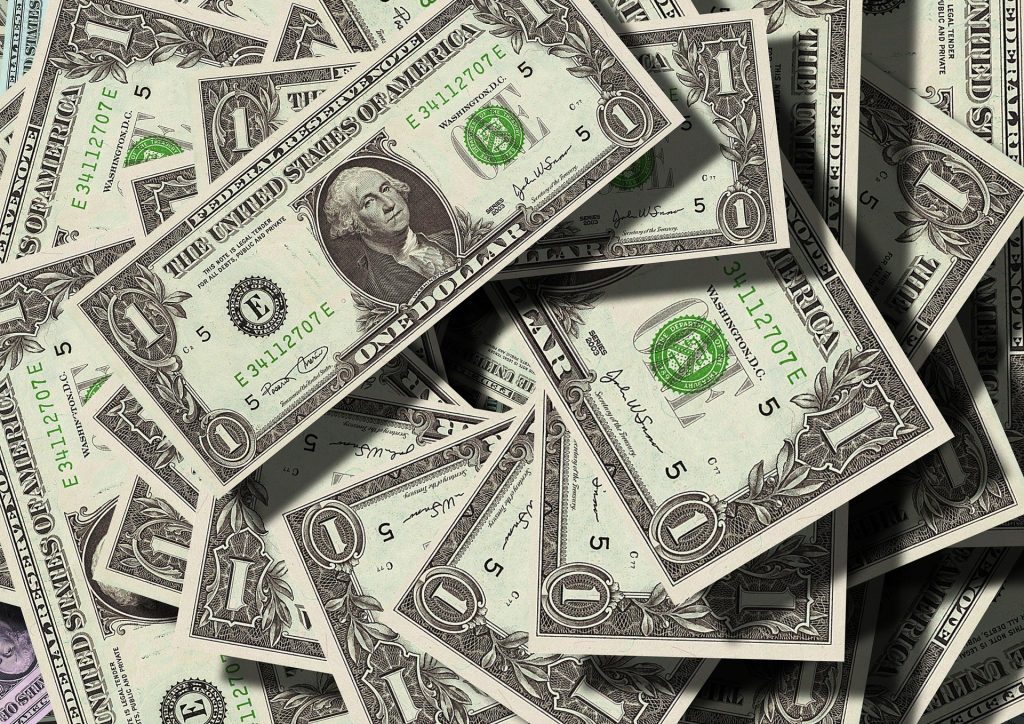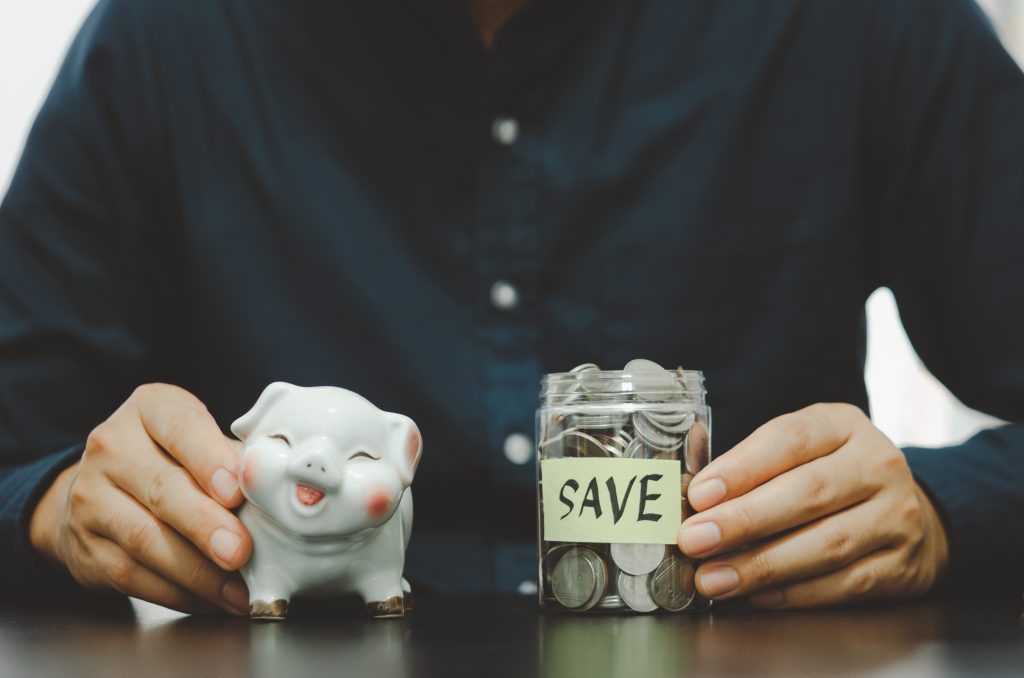Last Updated on May 29, 2022
Contents
Is It Better To Pay off Debt or Save Money?
If you want to have a financially healthy life, you need little to be able to buy the things you need without accumulating debt and a large savings account. Having money in the bank and savings to fall back on will allow you to make significant purchases, such as a car, house, or rental property. Unfortunately, savings and debt are often incompatible, especially if the debt has overwhelmed you.
In this case – pay off debt or save money? There are situations when becoming debt-free is essential. In other cases, saving money while gradually paying debts is better. Learn more about both options and what is best for you in this article.
Should I Save Money or Pay off Debt First If I Have a Large Loan?
With no one-size-fits-all solution, it is essential to consider your particular situation. For example, the number and types of debts you have are vital in choosing a solution.
Aspects to consider to help you understand your debts better:
- The type of loans you have.
- The interest rate for each.
- The repayment period.
- Other repayment conditions (e.g., late payment penalties).
Interest is significant in this equation. As you explore your loan’s characteristics, you’ll come across APR. APR stands for Annual Percentage Rate. It represents the extra money you have to provide to your lender and is a percentage of the loan’s amount. It is crucial to consider the interest involved in your loan because it determines how much you will pay back over time. If you are unclear about that amount, you should contact your lender.
The bottom line is you have to understand your debts to know how to become debt-free. After that, you can decide whether this is the way to go. Do your loans threaten your financial stability with high-interest rates? If yes, you might want to concentrate on paying them off first. If your debts are manageable, you can focus on putting money aside in a savings account.
Examples of the many types of debt you might have to cope with:
- Credit card debt
- Personal loans
- Student loans
- Term loans
- Mortgage
All these types of debt lead to different outcomes. For example, you may have a fixed end date for a loan. It determines when you must pay the money back with interest. That information is essential in your dilemma. Saving money or paying off debts depends on this.
If you realize you’ll owe more by taking your time, you might want to pay your debt as quickly as possible. Plus, this will also help you fix your credit as fast as you can.
Some debts renew automatically and are known as revolving credit. This method can be helpful but is tricky at the same time. You can continuously borrow cash up to a specific limit. As a result, you risk becoming a long-term debtor and can rack up significant debt.
If you are looking for solutions to paying off debts faster, a popular strategy is the Snowball Method. This strategy involves paying your debts from smallest to largest. Once you eliminate the smallest debt, move on to the next smallest one.
The Advantage of Paying Off Your Debts First
There is one significant advantage in choosing this path. You pay less interest. The more your loan extends, the more interest you pay. It could mean thousands more dollars in your pocket when you draw the line. Paying off debts fast is key to avoiding losing money because of high-interest rates. Being debt-free also offers you more peace of mind.
The Advantages of Focusing on Saving Money
Saving money can take different forms. Some people save money aggressively in the short term. Others focus on the long-term results of having a savings account. Depending on your goals, you can opt for either method.

When to Save Money Aggressively
Save aggressively when you:
- Prepare for a big purchase (house, car, etc.).
- Need cash fast for a meaningful change (a big move).
- Need money for a pressing matter (medical treatments).
- Have a hefty loan you need to repay.
This money-saving style is often the result of burdensome loans. Sometimes, people save aggressively to become debt-free. If you need money for any other reasons, there are ways to save money each month:
- Get another job to increase your income.
- Work extra hours to earn more.
- Sell valuable goods.
- Downsize your housing.
- Adjust your lifestyle to spend less.
Saving money with aggressive intent can also provide you with an emergency fund. Emergency funds are an essential element of a financially sound life. Among the many benefits of an emergency fund, we can mention:
- The ability to cope with unexpected purchases.
- The ability to make investments in time-limited circumstances.
- Generally feeling more comfortable and relaxed.
- The ability to pay off urgent debts and avoid new loans.
When to Save Money Gradually
Gradually putting money aside means building substantial savings. This saving method won’t overwhelm you. It will also allow you to enjoy spending some of your hard-earned money on hobbies and pleasures. Slowly saving money brings more peace of mind. It helps you have a budget for emergencies or your long-term goals.
Going cold turkey from reckless spending is difficult if you’re a big spender. For this reason, gradually saving money might be best for you. You can still afford to keep some of your old spending habits, but you can also start saving money for the future.
How to Save Money Each Month
It is helpful to look into your monthly expenses to get a complete picture and make plans to save. A few strategies to help you save money from every paycheck you get are listed below.
Start Cutting Down on Your Expenses
These expenses include anything that drains your budget. First, you have to recognize what your most significant expenses are. Check out your bank statements and do a quick calculation. You can even put it on paper like this:
Spending habit | Monthly amount spent | Reduced Budget |
|---|---|---|
Eating out | $500 | $400 |
Buying clothes | $200 | $180 |
Going to the cinema | $50 | $45 |
Going to the beauty parlor | $150 | $135 |
Total saved amount: $140 |
You could save precious bucks by cutting your budget a bit every month. As the example above illustrates, you could easily save $140 by reducing your spending.
Does your monthly spending look like this? Then, the thing that prevents you from saving more is eating out. You don’t have to give up this habit altogether. Just try doing it less often. Pick one day and only dine out on that specific day of the week.
Reduce Your Utility Bills
There are many ways to cut these costs. Start by taking baby steps:
- Change your electric bulbs with economic ones, such as LEDs.
- Start keeping the TV off when you’re not watching.
- Replace old appliances with new ones. These are more efficient and consume less energy. They’ll also do a better job.
- You can also use the half-payment method to save up money for utility bills to avoid any late fees.
Change Your Shopping Habits
Have a shopping list at hand each time you go grocery shopping. It will prevent you from buying unnecessary products. Purchase as many items as possible during sales—for example, more expensive products such as electronics or clothing.
If the thing you want is not on sale, do your best to save until you have the cash or wait until it goes on sale again. Then, only get the stuff you need. A method to help you prevent unnecessary spending is the 30-day rule.
Use this rule to tackle impulse buying. First, if you see an item you like, remember it. You can write it down or save a link to that product’s page. Then, wait for 30 days. At the end of this period, reconsider buying it. Thirty days is the amount of time you need to realize whether the product is genuinely a need.
In many cases, people no longer want to make that purchase. The 30-day rule can apply to any purchase, big or small. It helps you prioritize purchases that matter.
Reduce Your Housing Expenses
This idea might seem challenging, but it is not impossible. You can pay less on housing by downsizing. The result of downsizing can be hundreds of dollars per month in your savings account. If you rent a two-room apartment and you’re alone, switch to a studio. If you rent a whole house, switch to an apartment.
Changing the area where you live can also help. Living further from the city center costs less. It would help if you also consider transportation costs. Moving too far from your job or extended family can increase your gas expenses and take too much of your time.

Give up on Unnecessary Subscriptions
If you have many monthly subscriptions, it might be time to give up some. Subscriptions are usually not expensive if you have one or two, but you may save by canceling some of them if you pay for five or six. First, think about what you need and regularly use, then give up what doesn’t meet these criteria.
Stop Using Credit Cards
If you wonder why you can’t save money, the answer might be credit cards. Unfortunately, these cards feed the vicious debt cycle. You risk spending what you don’t have if you always carry them. An alternative is to use cash whenever possible.
Keep Your Savings Separate
A golden rule for safe savings is to keep this money separate. You can create a savings account. You can even hold it in cash in a safe or deposit box. Just make sure your monthly income and your savings stay separate. That is how you avoid tapping into the latter when in need.
3 Budgeting Strategies to Save Money
Is it better to pay off debt or save money by budgeting? For many people, the second solution is better. You can gradually pay off debts while saving money. To put money aside faster, use one of these three budgeting methods:
1. The Envelopes Budgeting Method
Divide your budget into different categories (e.g., rent and bills, grocery and gas, entertainment, and saving). Allocate a fixed budget to each. Use real or digital envelopes to store those funds. When spending, only use the available funds for each category.
2. The 50-30-20 budgeting strategy
This strategy requires you to allocate 50% of your income to your needs (rent, grocery, etc.). Then, 30% goes to your wants (hobbies, vacations, etc.), and the remaining 20% goes into a savings account.
3. The 60% Solution
This method doesn’t require you to scrutinize your spending. Use 60% of your budget for necessities. Then, allocate the remaining 40% to savings and entertainment like this:
Spending Category | Budget Percentage |
|---|---|
Entertainment | 10% |
Short-term savings | 10% |
Long-term savings | 10% |
Retirement savings | 10% |
Total Budget Percent | 40% |
This budgeting method allows you to save for your long and short-term goals. Plus, it will still leave something available for fun.
FAQs
Pay off Debt or Save Money First?
It all depends on your financial situation. For example, paying off debt first is an excellent solution to avoid high-interest rates. On the other hand, if you have manageable debt and a steady income, you might want to focus on saving for situations of significance, such as moving.
Is It Better to Pay Off Your Mortgage or Save Money for It?
Paying your mortgage off helps save money on the loan interest. To do this, you can pay extra each month, aside from the mandatory mortgage payment. You can also save money and pay off a large amount of your mortgage at once.
Look into which method is more convenient and if there are any prepayment penalties. Also, check the interest you get in your savings account. The earned interest can add hundreds or thousands of dollars to the amount you’ll use to pay off the mortgage.
What’s the Best Method to Save Money Fast?
The best method is to start saving aggressively. Cut as many expenses from your budget as possible. You have to be mentally prepared for this as it will require lifestyle changes.
What’s the Best Method to Pay Off Debts Fast?
Use the snowball method to stay motivated to pay off debt. Start with your smallest debt, do everything you can to pay it off as quickly as possible, and continue by paying off the next smallest debt until you’ve paid it all. Hopefully, the more debt you pay off, the better you feel and the more motivated you are to continue.
